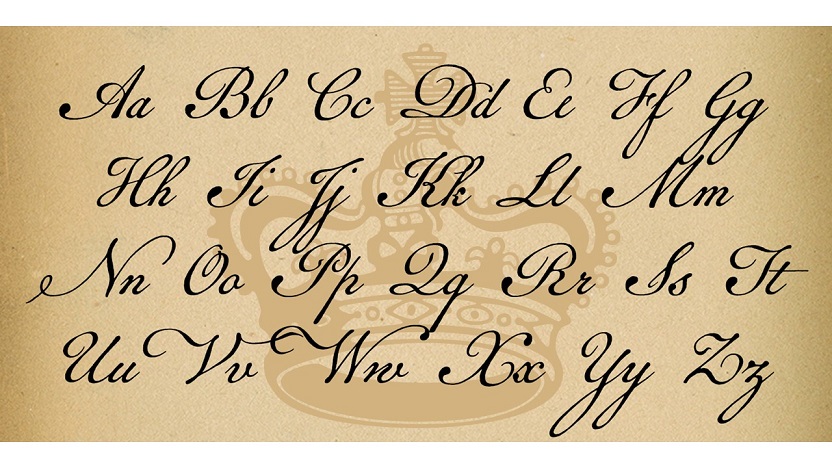.
Matters of Class
.
Saying hello
The modest o’s the most polite of letters;
But is he facing up today or down?
Each day he questions those he calls his betters
In order so he knows to smile or frown.
A frown, you see, becomes a charming smile
When seen from an inverted point of view.
And thus the o by being so versatile
Will know how best to say hello to you!
.
Royalty
The k is king of all that he surveys;
His subjects bow in reverence before him.
He holds them in his wise majestic gaze:
These three who always follow and adore him.
He leads them regally in every sentence;
Obsequiously, they trail a space behind.
The i and n and g are in attendance
Orthography has royally designed!
.
Common as muck
The e is quite the commonest of letters;
He has no shame nor any self-respect.
He mixes brazenly with all his betters:
With cultured types of higher intellect.
They tolerate the e because he’s useful:
He fills the gaps and does the jobs they won’t.
But if you ask them, and for once they’re truthful,
Esteem or feel respect for him, they don’t!
.
.
Paul Martin Freeman is an art dealer in London. The poems are from his recent book, A Chocolate Box Menagerie, published by New English Review Press.
















Nice and interesting. I wonder if you have ditched ‘q’ for ‘k’, now that the Queen has been replaced by a King?
Best,
Paddy
Thank you, Paddy. No, it was always “king”. “queen” wouldn’t have worked so well. “k” has the height.
I enjoyed the “e” one – a friend once criticized one of my sonnets because I had overused the “e” sound in my rhyme scheme. He said that it “wasn’t his favorite sound”
Paul, all three were clever, witty and entertaining. As I recall, I believe “e” is really the most commonly used letter in the English language as you intimated.
Thank you, Roy. Very nice comment. Yes, for poems like this to work for adults, the theme must be grounded in some attribute of the subject. As I see it, it’s the recognition of these two levels of meaning which makes us smile.
Inventiveness and flair
The blowfly’s mode of travel is unique:
Eschewing wings, he uses blasted air.
Though other flies regard him as a freak,
His method shows inventiveness and flair.
In truth, he’s been a source of inspiration,
And humankind is hugely in his debt.
Where flapping arms had failed at aviation,
The blowfly gave humanity the jet!
These are delightful little imaginings of various letters. Creating personifications of the letter forms is very much in the spirit of some nursery rhymes, where inanimate objects are often given an active life of their own.
The beautiful alphabet that Evan has chosen as an illustration is 19th-century, and was still taught in cursive penmanship classes right up through the 1950s.
Thank you, Joseph. Those classes were intended to be character building in every sense.
I enjoyed these alphabet character studies.
I recall I had to write a sonnet for a competition without using the letter ‘e’. That was a challenge and a half.
Thanks for the reads, Paul.
Thank you, Paul.
Not an easy task indeed!
I’ve subbed ‘Fifth Glyph’.
If “e” is so despised by the other letters, then what must they think of a schwa?
The ə: Industrious (for C.B. Anderson)
The ə’s the alphabet’s replacement wərkər;
They call him in whenevər he’s requiərd.
Industrious, the ə’s no work-shy shərkər:
He’s perfect when they’re sick or feeling tiərd.
He once was widely feted as the e,
But one day couldn’t bear his own renown.
So hard to handle was celebrity
He took to drink and ended upside down!
I think I’ve just been schwa-ed.
I especially like verses for the “e” and the schwa. As common as the “e” may be, there is no “e” in its title, “Common as muck”!
Hello Margaret. I’m delighted you liked the verses. Thank you for your comment.
I suppose the answer to your point would be that, as a commoner, the “e” has nothing to do with titles.
Excellent answer! Except that their excellencies appear in so often titles, that we should perhaps say they are commonly attendants by inclusion.
Lovely poem. And well thought out. A joy to read.
Hello Lorraine. Thank you for your comment. I’m very happy they got through!
Should you be interested, Evan has published others from the series:
https://classicalpoets.org/2023/03/24/the-tragedy-of-the-p-and-the-q-an-alphabet-poem-by-paul-martin-freeman/
https://classicalpoets.org/2023/04/21/a-few-special-letters-an-alphabet-poem-by-paul-martin-freeman/#comment-508498